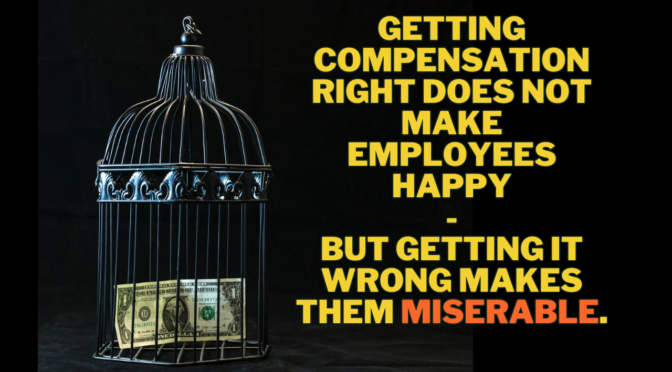 An excellent article by James Surowiecki in The Newyorker shows that retail stores that have more and happier staff are more profitable.
An excellent article by James Surowiecki in The Newyorker shows that retail stores that have more and happier staff are more profitable.
In fact, a study found that:
…every dollar in additional payroll led to somewhere between four and twenty-eight dollars in new sales. Stores that were understaffed to begin with benefitted more, stores that were close to fully staffed benefitted less, but, in all cases, spending more on workers led to higher sales.
The reasons for this aren’t hard to divine… Customers’ needs are pretty simple: they want to be able to find products, and helpful salespeople, easily; and they want to avoid long checkout lines. For a well-staffed store, that’s no problem, but if you don’t have enough people on the floor, or if they aren’t well trained, customers can easily lose patience.
One of the biggest problems retailers have is what is called a “phantom stock-out.” That’s when a product is in the store but can’t be found. Worker-friendly retailers with more employees have fewer phantom stock-outs, which leads to more sales.
And happy workers tend to stick around, which saves the costs associated with employee turnover, like hiring and training.
The article also cites a few counter-examples:
In 2007, Circuit City fired more than three thousand of its most experienced salesmen, replacing them with newer workers whom it could pay less. Its sales dropped, and it was bankrupt within a couple of years.
When Bob Nardelli took over Home Depot, in 2000, he reduced the number of salespeople on the floor and turned many full-time jobs into part-time ones. In the process, he turned Home Depot stores into cavernous wastelands, with customers wandering around dejectedly trying to find an aproned employee, only to discover that he had no useful advice to offer. The company’s customer-service ratings plummeted, and its sales growth stalled.
So: Keep your retail staff happy and you will sell more. This ain’t exactly rocket science :o)
In fact, we did some work for IKEA in Denmark in 2010, to help them become happier and more profitable, and the results were exactly as predicted by this article: Higher employee happiness, higher customer satisfaction, lower employee turnover, lower absenteeism, higher sales and higher profits.



 I just discovered a great article by Linda Hill & Kent Lineback on
I just discovered a great article by Linda Hill & Kent Lineback on 


 Someone sent me a link to this Forbes article about
Someone sent me a link to this Forbes article about 

